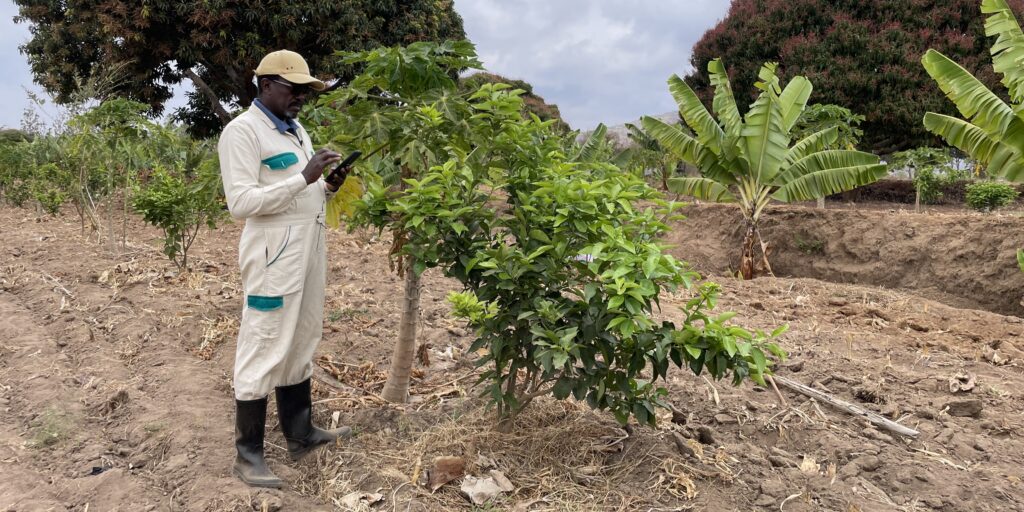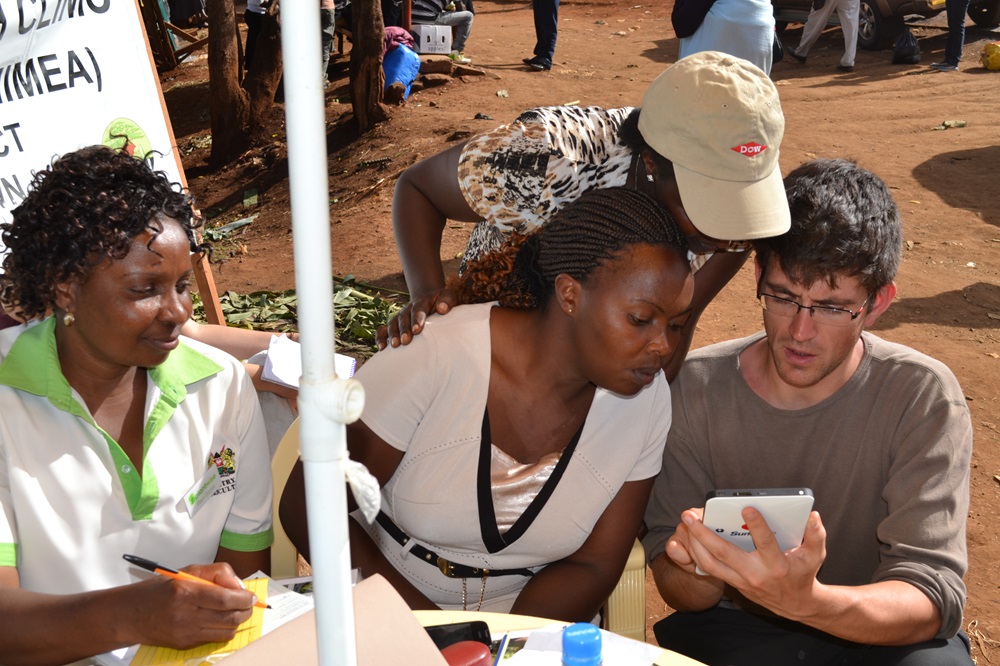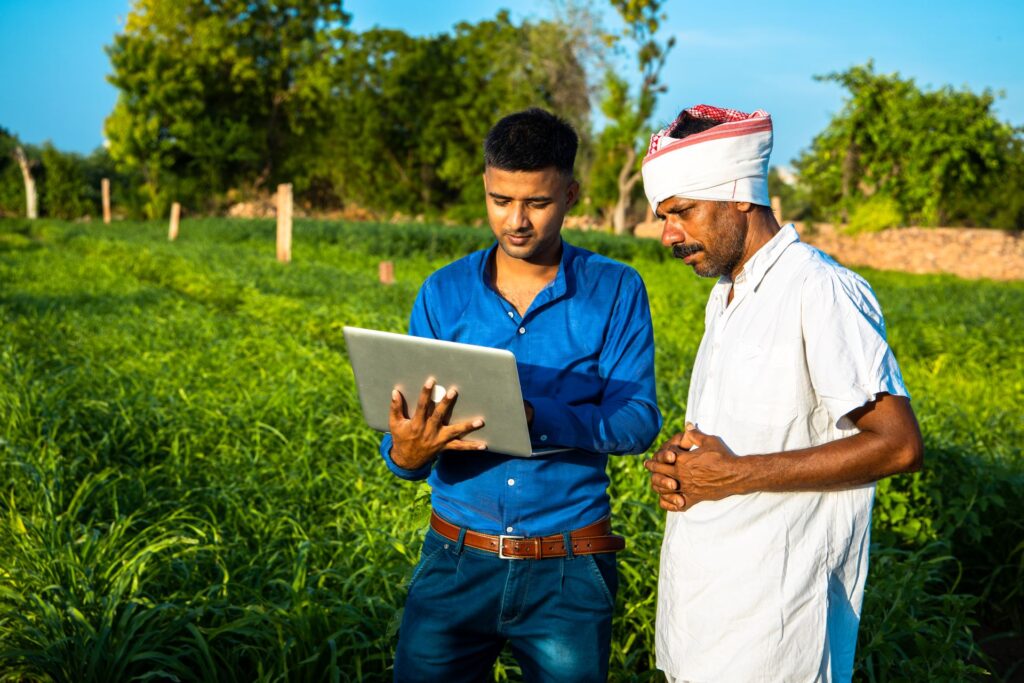CABI Blog
Category: Digital development
You are here: CABI Blog
Making data work better in agriculture with FAIR principles
May 27, 2025
Toby Penrhys-Evans
No Comments
CABI’s ‘Enabling FAIR data sharing and responsible data use’ project, funded by the Gates Foundation, is helping transform agricultural development by promoting FAIR data in agriculture. The project empowers stakeholders with tools and capacity to improve data sharing and digital innovation.
Lessons in AI Governance from the GAIA Project
May 14, 2025
Chipo Msengezi
1 comment
Generative AI is starting to reshape how agricultural advice is produced, shared, and used — but the shift comes with both opportunities and challenges. For smallholder farmers, agriculture advisory chatbots and AI-based diagnostic tools could offer faster, more localised, and scalable support. They are often adopted by farmers directly, whilst in the best cases they…
Six steps to implementing FAIR and responsible data practices
January 17, 2025
Boma Beddie-Memberr
No Comments
The FAIR Process Framework was developed by CABI and commissioned by the Gates Foundation to guide organizations toward effective data management. Boma Beddie-Memberr, Project Manager, Data Policy & Practice at CABI, outlines the six steps to implementing FAIR and responsible data. The FAIR Process Framework is a structured six-step approach designed to promote the adoption…
Unpacking FAIR’s jargon: The Indian example
October 16, 2024
Ameen Jauhar
No Comments
Ameen Jauhar, Data Governance Lead in CABI’s Digital Development team, examines the importance of the FAIR (Findable, Accessible, Interoperable, and Reusable) data principles. Drawing from his experience in data governance and policy, including his work in the data and AI policy sector in India, Ameen explores nuances between global and local data governance jargon and…
Strengthening Agricultural Advisory Services with Generative AI
September 23, 2024
Elizabeth King, Katherine Cameron
No Comments
The Generative Artificial Intelligence for Agriculture Advisory (GAIA) project aims to strengthen agricultural advisory services in Kenya and India. Running from 15 April to 31 December 2024, this pilot project brings together partners to leverage the power of Generative AI to enhance the support available to agricultural extension advisors. The initiative, funded by the Bill…
Importance of MaDiPHS Data Catalogue highlighted as a key resource towards greater FAIR data in agriculture
August 14, 2024
Wayne Coles
No Comments
The importance of the Malawi Digital Plant Health Service (MaDiPHS) Data Catalogue has been highlighted as a key resource towards greater FAIR data in the agricultural sector at a workshop attended by various stakeholders in Malawi.
CABI Academy launches Digital Skills Training Materials to develop digital skills amongst smallholder farmers
August 5, 2024
Wayne Coles
No Comments
CABI Academy, a learning platform that addresses a range of agricultural challenges faced by smallholder farmers, has launched Digital Skills Training Materials. The pack can be used to develop skills of others within the rural community such as agro extension workers and plant doctors. The pack is freely available worldwide. It contains resources such as…
Unlocking the power of data ecosystems in agriculture: Enhancing insight and impact
July 4, 2024
Akanksha Nagpal
No Comments
In today’s data-driven world, understanding and leveraging data ecosystems is paramount for organizations aiming to achieve impactful outcomes. This is exemplified by work being carried out through the CABI-led project ‘Enabling FAIR data sharing and responsible data use.’
CABI’s very own certified drone pilot takes flight to strengthen partnerships for precision crop pest control
June 19, 2024
Wayne Coles
No Comments
The sky’s the limit for Violet Ochieng, CABI’s very own KCAA-Certified drone pilot, who visited the UK from Kenya to help strengthen partnerships for greater use of drone technology for precision crop pest management. Ms Ochieng, Research Officer – Drone Technology, based at CABI’s regional centre for Africa in Nairobi, Kenya, met colleagues from the…
CABI and partners convene soil information systems workshop in Zambia
May 29, 2024
Alasdair McKay
No Comments
On April 17 and 18 2024, CABI, ISRIC – World Soil Information, the Zambia Agriculture Research Institute (ZARI) and the Food and Agriculture Organization of the United Nations (FAO) held a two-day soil information system roadmap development workshop at the Intercontinental Hotel in Lusaka, Zambia. Funded by the Bill and Melinda Gates Foundation, this work is part of the…
Subscribe to blog
DISCLAIMER
Views expressed in contributions do not necessarily reflect official CABI positions.
Archives
Categories
- Agriculture and International Development
- Veterinary and Animal Sciences
- Climate change and biodiversity
- Publishing
- Value chains and trade
- Crop health
- Environmental Sciences
- Human Sciences
- Tourism, Hospitality and Leisure
- Food and nutrition security
- Plant Sciences
- Gender and youth
- Digital development
- Development communication and extension
- Economic development
- Invasive species
- CABI Bioservices
- One Health










